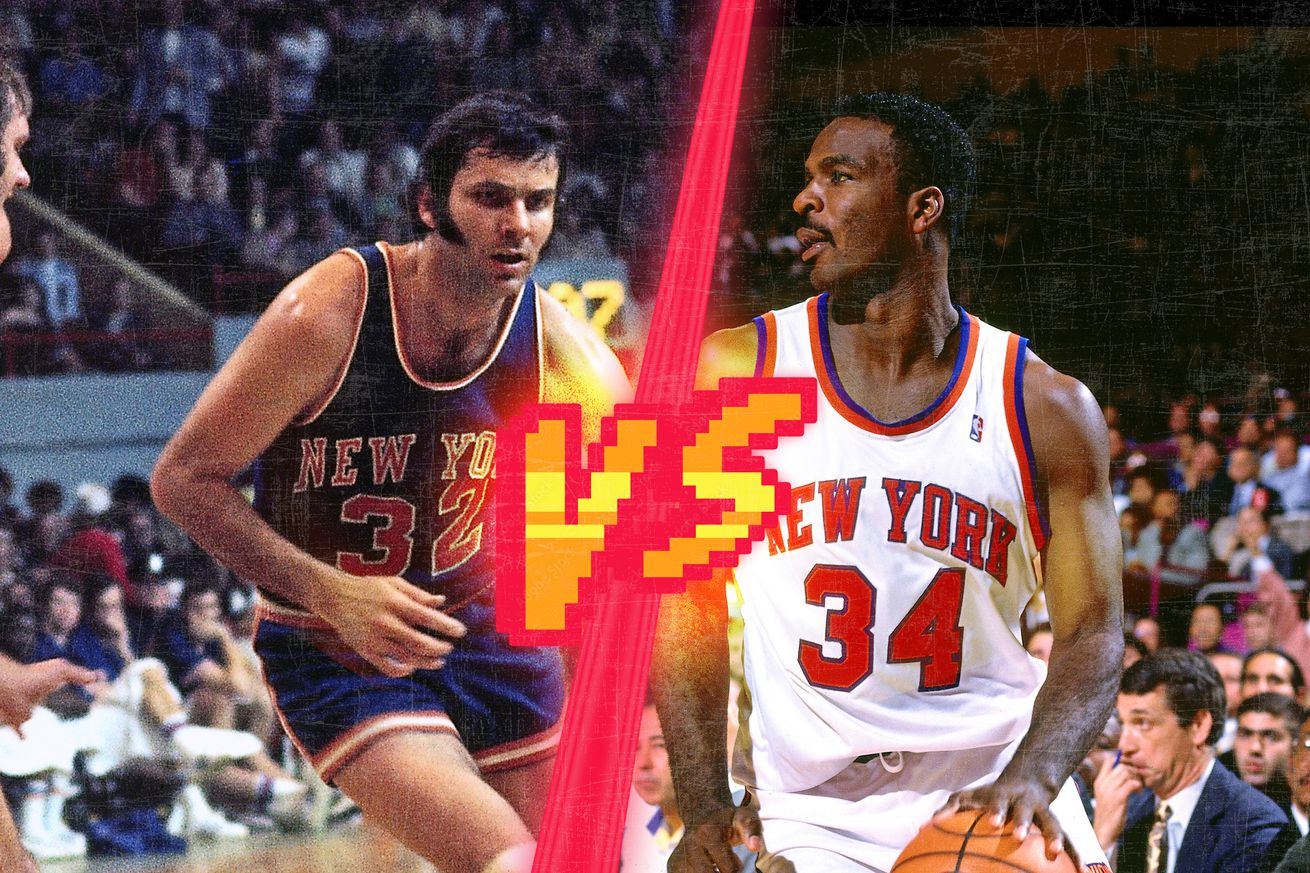
Dr. Memory vs. Oak Tree
I’m going to make an executive decision and go out on a limb here by giving Bernard King the win over Malik Rose if we had run a WRWIB matchup between #30 and #31. So, instead, this week’s matchup is a much more compelling duel between Jerry Lucas and Charles Oakley.
I love the matchups that stir debate between Knicks generations. Oakley vs. Lucas couldn’t present a better example, It makes for an exciting first-round matchup, with the winner set to go head-to-head with Allan Houston in Round 2.
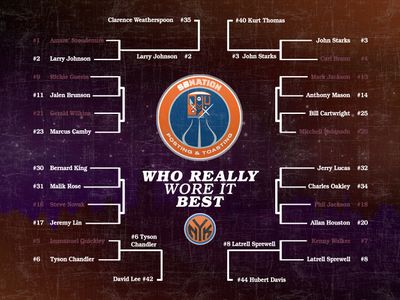
#32 Jerry Lucas — It really was a no contest between Lucas, Xavier McDaniel, and Herb Williams for WWIB #32. If you were to look up Lucas’s list of accomplishments as a professional basketball player, it would appear endless, and that’s because it nearly is. Lucas was a 7x All-Star, and NBA and NCAA champion. He made the All-NBA First Team three times, and the Second Team twice. Lucas also won an Olympic Gold Medal in 1960, and perhaps most impressive was his inclusion on both the NBA’s 50th and 75th Greatest Players of All Time lists. Twice, Lucas averaged more than 20 points and 20 rebounds in a single season, and over his career he averaged 17 points and 15.6 rebounds per game.
In 1971, the Knicks acquired the sharp-shooting big man in exchange for Cazzie Russell. Initially, the Knicks intended for Lucas to back up Willis Reed, but when Reed suffered a season-ending injury early in the 1971-72 season, Lucas stepped into the starting lineup as the league’s smallest center. Despite skepticism from fans and journalists, Lucas silenced his critics by delivering one of the best seasons of his career. He led the Knicks in rebounding and shooting accuracy and finished second in scoring and assists behind Walt Frazier.
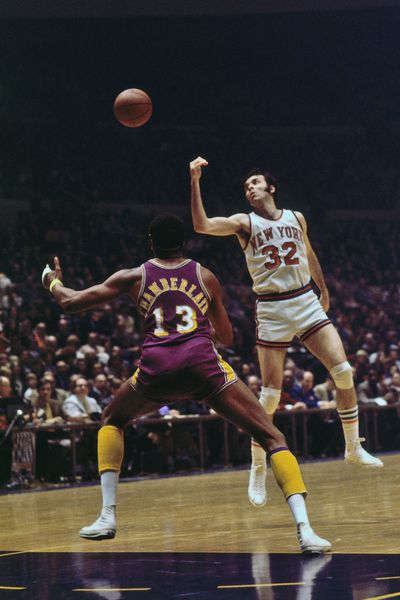
Photo by Dick Raphael/NBAE via Getty Images
What made Lucas truly astonishing on the court was his versatility. Despite standing at 6’8’’, he was a walking double-double and one of the league’s best long-range shooters long before the three-point line had been introduced by the NBA, causing teams to change their defensive strategies by sending their big men well beyond today’s three-point line to guard him, which in turn would clear out the lane for the offense.
The following year, Lucas’s second in New York, with a healthy Reed back in the starting lineup, Lucas was relegated back to the bench for the first time in his career. Lucas still played a pivotal role for the Knicks championship team of 1973, and that championship placed him in the upper echelon of winning a championship at every level of the game – high school, college, the Olympics, and the NBA.
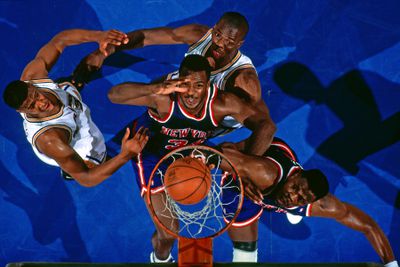
Photo by Sam Forencich/NBAE via Getty Images
#34 Charles Oakley — If Lucas has some competition between McDaniel, and Williams, then it’s fair to say it was a romp for Oak over Eddy Curry and Antonio McDyess. Oak earned all but 7 of the 164 total votes from WWIB #34.
Acquired by the Knicks in 1988 through via trade with the Chicago Bulls for center Bill Cartwright, Charles Oakley wasted no time carving out his identity in New York. He quickly established himself as one of the NBA’s most feared enforcers, an immovable presence in the paint who brought a no-nonsense attitude to every possession. Opponents who dared venture into his territory were almost always met with punishing contact and a reminder that nothing came easy at Madison Square Garden.
Oakley wasn’t just muscle. He was the heart and soul of those tough, defensive-minded Knicks teams of the ‘90s. When a teammate hit the floor or a scuffle broke out, which seemed to be a regular occurrence during that era, it was Oakley who stepped in first, unafraid to put his body or reputation on the line. His toughness became symbolic of the Knicks’ identity: gritty, unrelenting, and unapologetically physical.
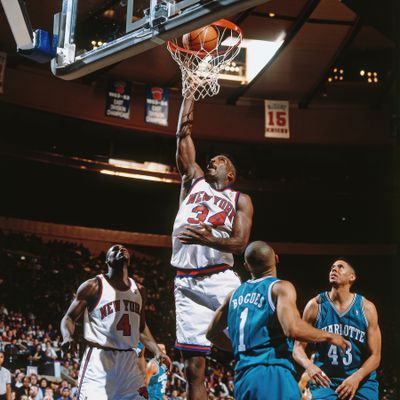
Photo by Nathaniel S. Butler/NBAE via Getty Images
Leadership came naturally to Oakley, and it didn’t go unnoticed. In the Knicks’ storied history dating back to 1946, only 36 players have been awarded the honor of team captain. Oakley joined that exclusive group, sharing the title with Patrick Ewing during the Knicks’ memorable 1994 NBA Finals run. His captaincy was more than ceremonial—it reflected his influence in the locker room and his unwavering commitment to team-first basketball. Oakley continued in that leadership role for years, setting the tone both on and off the court until his departure in 1998.
To this day, Oakley is still a fan favorite (even if he is banned from MSG) and remains a lasting symbol of an era when Knicks basketball was defined by its toughness, loyalty, and refusal to back down from anyone.
